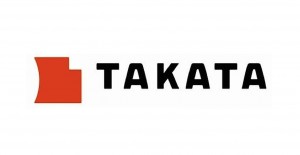
The troubled supplier is close to filing bankruptcy, sources claim. The filing could come as early as next week.
The long saga that has become the deal between Takata Corp. and Key Safety Systems Inc. may be winding to a close as sources report the Japanese company is close to filing bankruptcy, perhaps as early as next week.
Reuters reports that Takata has been hammering out a deal with Key for financial backing, and trying to deal with the billions of dollars in liabilities it owes due to its defective air bag inflators.
Another sticking point is the $850 million owed by the Japanese airbag system maker to major global automakers, which is part of a settlement reached earlier this year. The company has until 2018 to pay the $850 million. Neither Takata nor Key commented on the story, Reuters reported.
In addition to the $850 million, Takata agreed to pay a $25 million criminal fine, $125 million in victim compensation The two sides may not be able to reach a deal before Takata files. The Japanese supplier will file in the U.S. and Japan, Reuters reported.
(Takata airbag recall effort sputtering. Click Here for the story.)
Several automakers are concerned about this possibility. They are worried if the two side don’t reach a deal it will disrupt the flow of replacement airbag inflator kits.
The Japanese automotive supplier produced faulty airbag inflators that would explode under certain conditions, sending pieces of metal and plastic into the cabin of the vehicle. The problem is currently blamed for at least 16 deaths – most of those in the United States – as well as more than 180 injuries.
(Four automakers settle Takata airbag suit for $553 million. Click Here for the details.)
The problem has triggered the largest recall in automotive history, impacting about 100 million airbags produced by Takata. Because some vehicles used multiple airbags, the precise number of them affected is uncertain but is expected to ultimately run in excess of 50 million in the U.S. alone.
A total of 19 different manufacturers have been forced to order recalls, from small brands like Ferrari to Japanese giant Toyata. Honda had the broadest relationship with Takata and has the most vehicles covered by the service actions that began in 2008 when the defect started to become apparent.
Despite widespread media coverage of the problem and a variety of attempts to tell owners of the problem and various incentives, more than 65% of the vehicles that are part of the recall still haven’t gotten their vehicles repaired.
(To see more about Mueller’s departure, Click Here.)
Additionally, Robert Mueller, the former FBI chief overseeing the dispersal of funds to victims, recently resigned to act as special prosecutor handling the investigation into Russia’s ties to the Trump Administration.
